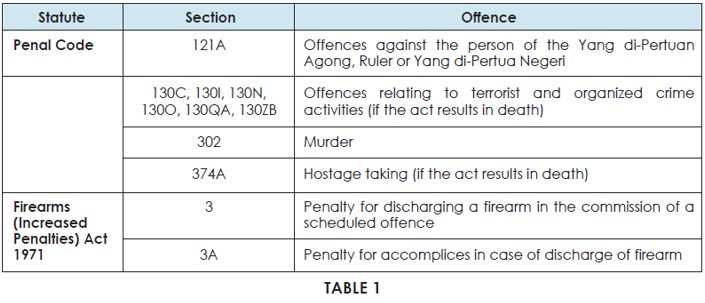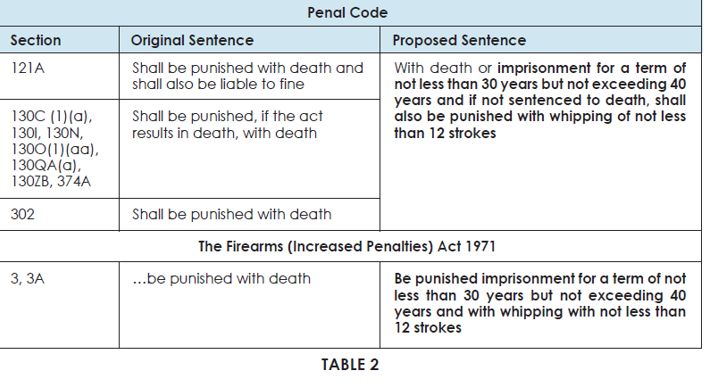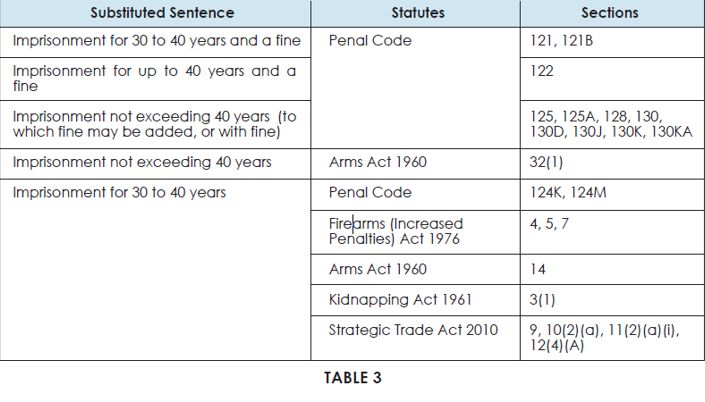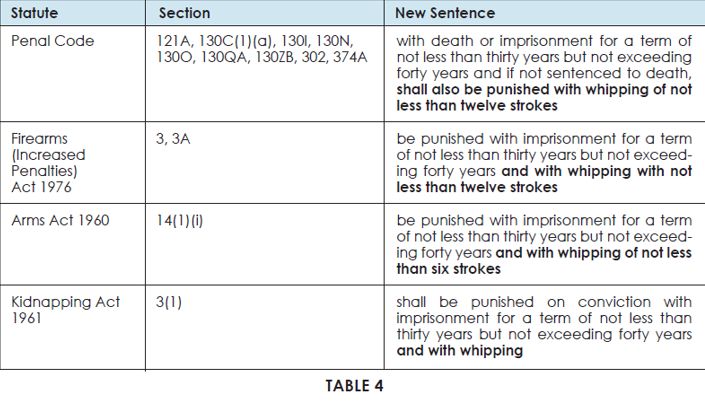Death Penalty in Malaysia
The death penalty has been introduced in the Malaysian Criminal Justice System since the British Colonial Administration when it was originally enforced for the offence of murder. In 1975, death penalty was introduced as a discretionary penalty for drug trafficking and it was made mandatory in 1983. According to official data, some 1,318 prisoners were hanged between 1992 and 2023 in Malaysia.1
The death penalty is regarded as the most inhuman, degrading punishment and violates the most fundamental human right. However, it is important to acknowledge that the judges' hands are tied as they are administering the law. This begs the question as to who is responsible to fix the law. In the Federal Court decision, Azahar Mohamed CJ held that;
"Under the Federal Constitution, the power to determine the measure of punishment or to prescribe punishment was a legislative power and not a judicial one. It was not an integral part of the core judicial function of adjudicating guilt or innocence but an integral part of the legislative function of creating offences and prescribing their punishments. Hence, it was well within the Legislature's power to enact the impugned provisions since Parliament could lawfully prescribe a fixed punishment for an offence.2"
In light of the above, there is no doubt that the Court is only empowered to pass any sentence within the parameters of a sentence prescribed by Parliament.
Efforts to Abolish Mandatory Death Penalty
On 8th June 2022, Former Minister in the Prime Minister's Department (Parliament and Law) Datuk Seri Wan Junaidi Tuanku Jaafar announced that the government has agreed for further scrutiny and study to be carried out on the proposed substitute sentence for 11 offences carrying the mandatory death penalty, one offence under Section 39B of the Dangerous Drugs Act 1952 (Act 234) and 22 offences carrying the death penalty at the discretion of the court.
On 27th March 2023 Minister in the Prime Minister's Department (Law and Institutional Reform) Datuk Seri Azalina Othman Said tabled the Abolition of Mandatory Death Penalty Bill 2023 and the Revision of Sentence of Death and Imprisonment for Natural Life (Temporary Jurisdiction of Federal Court) Bill 2023 for first reading in the Dewan Rakyat.
On 3rd April 2023, Deputy Minister in the Prime Minister's Department (Law and Institutional Reform) Ramkarpal Singh tabled the Bills for its second and third reading. The Bills were unanimously passed.
Offences punishable with mandatory death penalty
In Malaysia, death sentence is divided into two categories namely mandatory death sentence and discretionary death sentence.
As discussed above, if an accused is convicted for the offences which provide the sentence of mandatory death sentence, the court has no discretion despite the circumstances and mitigating factors presented by the accused.
Mandatory death sentence imposed by the statutes are as Table 1.

The Effect of the Abolishment of Mandatory Death Penalty
The Abolition of Mandatory Death Penalty Bill 2023 aims to abolish and substitute the punishment to life imprisonment and whipping; as well as to provide for matters related to it by amending seven related Acts namely the Penal Code (Act 574), Firearms (Increased Penalties) Act 1971 (Act 37), Arms Act 1960 (Act 206), Kidnapping Act 1961 (Act 365), Dangerous Drugs Act 1952 (Act 234), Strategic Trade Act 2010 (Act 708), and Criminal Procedure Code (Act 593).
Summarily, the key amendment of the statutes listed above can be illustrated as Table 2.
I. Abolishment of the Mandatory Death Penalty

II. Removal of the Sentence of Life Imprisonment
Apart from reforming the mandatory death penalty, DR 7 also sought to remove the sentence of life imprisonment in Malaysia. Under the Malaysian law, life imprisonment is divided into two categories, being life imprisonment for natural life and imprisonment for specified period. Imprisonment for natural life is limited to the specific statutes namely the Penal Code, Firearms (Increased Penalties) Act 1976 and the Arms Act 1960. The life imprisonment is provided in various different approaches as punishment for different categories of offences: first, as an alternative penalty to death sentence; second, as a sole penalty in the form of imprisonment for natural life; third, as a sole penalty in the form of 30 years; and fourth, as a maximum penalty of imprisonment where the minimum years of imprisonment may, or may not, be provided; and lastly, as a form of an alternative penalty when the offender receives a royal pardon for the death penalty.3
Under the Abolition of Mandatory Death Penalty Bill 2023, the sentence of life imprisonment is removed for the following offences and substituted with terms of imprisonment. (Refer Table 3).

III. Introduction of Alternative Punishments and Retention of Whipping.
The Abolition of Mandatory Death Penalty Bill 2023 introduces mandatory whipping as an alternative to the death penalty. Additionally, an accused convicted will also be liable for an imprisonment for the period of 30 to 40 years.
In summary, the proposed amendment will affect the following offences as per Table 4.

Further, the Abolition of Mandatory Death Penalty Bill 2023 proposed to retain the sentence of whipping for the offence under Section 364 of the Penal Code, Section 4, 5 and 7 of the Firearms (Increased Penalties) Act 1976 and Section 39B of the Dangerous Drug Act.
IV. Transitional Measures
Apart from the above amendment, the Bill also proposed transitional measure whereby the amended punishment will be applicable to those who are undergoing trials or have already been convicted and reviewing their cases from at the higher courts. It is noteworthy that the prisoners have the right by virtue of the transitional measure to file review of their sentences but not their convictions. According to Ramkarpal Singh, the transitional measure will affect 476 prisoners who has not completed the proceedings or appeals at the Court of Appeal and Federal Court and 842 prisoners who have exhausted all the legal avenues.4
Conclusion
Briefly, the ultimate purpose of the Bill is to abolish the mandatory death penalty with the discretionary death penalty. By virtue of the abovementioned amendments, the court has the power to exercise their discretion whether to impose death penalty or sentence the accused with imprisonment. It is pertinent to note that the death penalty remains applicable punishment for several offences.
Therefore, the decision to scrap the mandatory death penalty can be perceived as a reformation of colonial-era laws by giving the judges greater diplomacy over sentencing.
Footnotes
1. Nicholas Yong. (2023, April 3). Malaysia ends mandatory death penalty for serious crimes. BBC.
2. Letitia Bosman v PP And Other Appeals (NO 1) [2020] 5 MLJ 277.
3. Dusuki, F. N., & Abdul Hamid, M. Reviewing if emprisonment in Alaysia: Rospects for aw reform? https://law.unimelb.edu.au/__data/assets/pdf_file/0011/3922472/Dusuki_Farah-Nini.pdf
4. Hansard Bil. 30 (DR. 3.4.2023 ) dated 03.04.2023 at page 105
The content of this article is intended to provide a general guide to the subject matter. Specialist advice should be sought about your specific circumstances.

